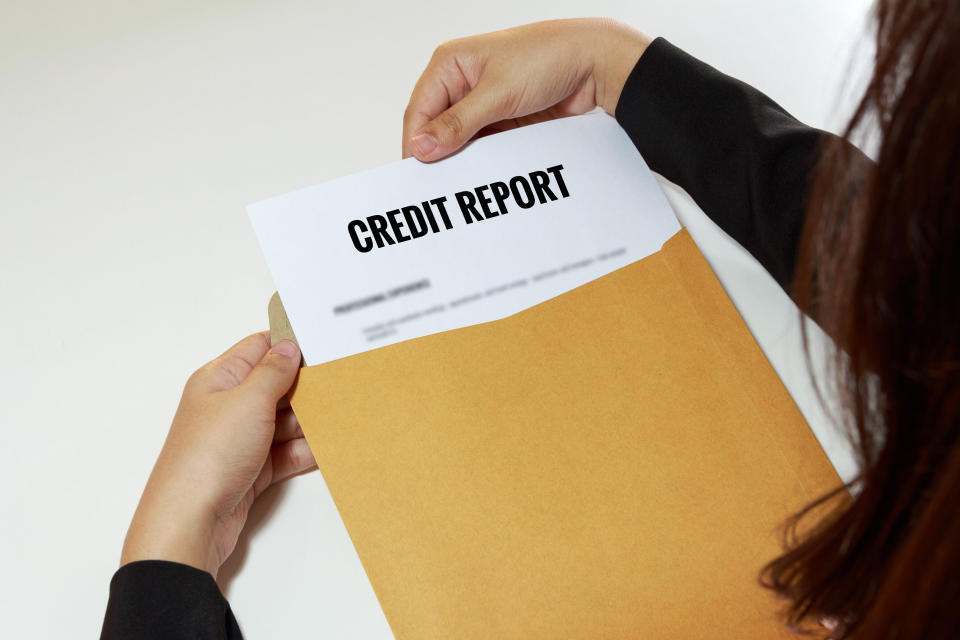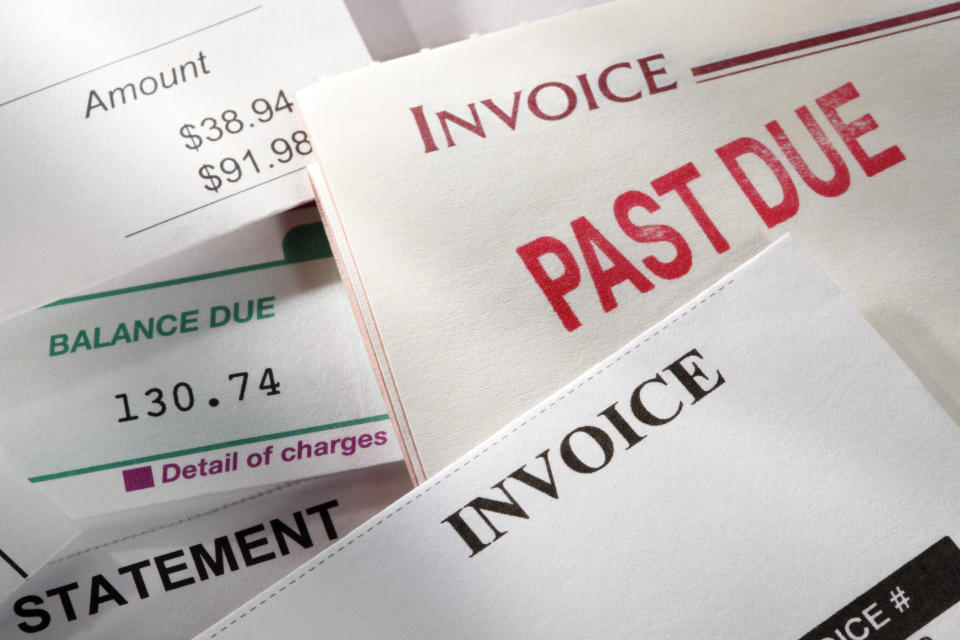6 Fast Ways To Boost Your Credit Score Before Getting A Mortgage
Though you can buy a house with bad credit, the process is a whole lot easier when your credit score is in good shape. And if you’re teetering between fair and good credit, it could mean a difference of thousands of dollars in interest over the life of your loan.
So before you start your mortgage application, it’s a good idea to boost your score as much as possible. Fortunately, there are several ways to improve your credit score in a matter of weeks.
What credit score is needed for a mortgage?
The credit score you need to qualify for a mortgage depends on the type of loan you’re after. FHA loans, for example, only require a credit score of 500 to qualify, though you need to put down at least 10% as a down payment and pay private mortgage insurance. To put down just 3.5%, a credit score of 580 is required.
“FHA loans come with additional costs such as mortgage insurance premium, so you will want to make sure that even if you are approved for a loan it is still a wise decision,” said Brian Walsh, manager of financial planning at SoFi.
But for conventional mortgages, he said, the minimum credit score needed is in the mid-600s. An analysis of Credit Karma members shows the average credit score for first-time homebuyers in the U.S. is 684, though the number varies by location, according to Dana Marineau, vice president at Credit Karma.
Even so, that’s probably not good enough to qualify for the best interest rates. To get the best loan terms, you’ll likely need a score of 720 or better.
Ways to increase your credit score quickly
So what can you do to bump up your score within a reasonable amount of time? Though building good credit takes years of maintaining good habits, there are a few things you can do to give your score a boost before applying for a mortgage.
1. Dispute credit report errors.
“You should start by getting a copy of your credit report and looking for any mistakes,” Walsh said. “There may be errors on your credit report that could negatively impact your score.” In fact, one report by the Federal Trade Commission found that one in five consumers had an error on at least one of their credit reports.
To review your credit reports for errors, start by visiting annualcreditreport.com. This is the only website that’s federally authorized to provide free credit reports. Look through each report for mistakes such as incorrect name or address, credit lines that don’t belong to you, duplicate entries, incorrect account status and other errors that could lead to a lower score.
Since each credit bureau collects and reports credit information independently, you’ll need to check all three reports. If you find a mistake, you’ll also need to dispute it with each bureau. Each one has a slightly different process for disputing errors, but instructions can easily be found on their websites.
2. Pay down some debt.
Once you’re sure that your credit reports are up-to-date and accurate, look for ways to reduce the amount of debt you owe.
One of the major deciding factors in applying for a mortgage is your debt-to-income ratio. This number measures how much of your monthly income goes toward paying back debts.
“If you can pay off a loan, that loan’s monthly payment goes away, improving your debt-to-income ratio,” said Justin Pritchard, a certified financial planner and owner of Approach Financial in Montrose, Colorado. “Lenders prefer that your total debt payments take up a relatively small portion of your total monthly income. Eliminating a payment may help you qualify for a loan.”
Most mortgage lenders require a back-end DTI (the total amount of income allocated toward debt, including your potential mortgage payment) of no more than 43%. So by paying down a credit card balance or paying off your car loan, you will immediately lower your DTI and increase your odds of approval.
And though DTI doesn’t directly affect your credit score, paying down outstanding debt does. That’s because “amounts owed,” also known as your credit utilization ratio, makes up 30% of your FICO score. The more of your available credit you borrow against, the more it can negatively affect your score. So again, by reducing how much debt you have to your name, you become a much more attractive borrower.
3. Ask for a credit limit increase.
In addition to paying down debt, another easy way to improve your score instantly is by getting a credit limit increase. While this won’t change your debt-to-income ratio, it will lower your credit utilization since your outstanding debt remains the same while your available credit increases.
Often, you can request an increase and get approved instantly through your card company’s website. Sometimes, however, you’ll need to call and ask.
Keep in mind that credit card issuers will sometimes run a credit check before granting a credit limit increase. Doing so results in a hard inquiry on your credit report, though just one inquiry will have a negligible impact. And if your credit has taken a hit since you first opened your credit card account, your issuer might actually lower your limit instead.
4. Get added as an authorized user.
Another way to instantly improve your credit is by piggybacking on someone else’s. If you have a family member or a close friend with excellent credit, you could ask them to add you as an authorized user on one of their credit cards.
When someone adds an authorized user to a credit card, that account’s information is reported on both people’s credit reports. If you’re added to an account with a long, clean history, it can bump your score a bit higher. The best part is, you don’t actually need to use the credit card or even know the card’s information. The primary account holder’s activity will automatically transfer to you, too.
Credit bureaus don’t give as much weight to authorized user status as they do primary cardholder status. Still, every little bit helps. Just keep in mind that you’ll need to share both the good and the bad of that account. If the primary holder misses a payment or maxes out the card, you’ll suffer the consequences as well.
5. Consider a credit-builder loan.
If you have limited experience with different types of credit, a credit-builder loan might help you diversify your credit mix — which accounts for 15% of your FICO score — and bump up your score a bit.
“These small loans, which are typically less than $1,000, aren’t really loans at all ― at least not in the traditional sense,” said Marineau, the vice president at Credit Karma. “The financial institution deposits the loan amount into a locked savings account you can’t access, and over the next six to 24 months, you pay off the loan just as you would with any other loan. Once the loan is fully paid off, the accumulated money is returned to you in total.”
If you’re worried about adding another credit inquiry to your reports, the good news is that many lenders offering these loans (typically credit unions) don’t require a traditional credit check to qualify. Instead, they might evaluate your banking history through the consumer reporting agency ChexSystems, according to Experian.
6. Request a rapid rescore.
Once you’ve done all the hard work of cleaning up your credit, you’ll want your credit scores to reflect that. That’s where rapid rescoring can help.
“You might be able to use rapid rescoring to get your credit reports updated quickly (within a week or so) and receive a more favorable score,” Pritchard said. This is much faster than the weeks or months it can take for credit changes to be reflected in your score normally. “Not every lender offers that, but if it’s available and it helps, go ahead and use it.”
Other tips to keep your credit in good shape

While you’re working to improve your credit before buying a house, there are a few mistakes you should avoid so your progress isn’t undone.
Don’t miss any payments: The single worst thing you can do for your credit is pay a bill late. Payment history makes up 35% of your FICO score ― the most heavily weighted factor.
Don’t apply for new credit: Until you’ve locked in your mortgage, avoid chasing attractive sign-up bonuses and rewards offers. If a lender sees several credit inquiries leading up to your mortgage application, it will be a red flag that you’re too reliant on credit.
Do your rate shopping over a two-week period: That said, you’ll need to shop around and get rate quotes from different mortgage lenders. Fortunately, credit bureaus recognize that rate shopping is a natural part of the mortgage process. “Just make sure you shop around within a short period of time, since inquiries made within a certain window are grouped together,” said Walsh, the financial planning manager at SoFi. “That window is between 14 and 45 days depending on the model used, so plan on shopping around within two weeks to be safe.”
Keep credit card balances as low as possible: Even if you plan to pay the entire balance when your bill comes, there’s a good chance your balance is reported to the credit bureaus mid-month, making it seem like you’re using a lot of credit. “Even if you pay off your credit cards every month, you need to keep your balances especially low when applying for a mortgage,” Pritchard said. “When they pull your credit, they get a snapshot of your account balances, and that might be from the day before you pay off your balance.” A good rule of thumb is to keep your balance below 30% of your credit limit, though the lower, the better. “If that means paying off your credit card every week while you’re in the application process, it’s probably worth it,” he said.
Don’t close accounts: It might seem counterintuitive, but you should avoid closing any revolving credit accounts like credit cards, even if you aren’t using them. Closing an account immediately reduces your available credit. If you have outstanding debt, this will cause your credit utilization ratio to jump up. Your best bet is to avoid making any major changes until you sign your mortgage contract.
Related Coverage
5 Ways You Might Be Committing Mortgage Fraud
3 Times You Shouldn't Bother Saving A 20 Percent Down Payment On A Home
This Map Shows The Average Credit Score In Every State
Also on HuffPost
Myth 1: You should stay away from credit ― period.

Those who avoid using credit are at risk of never developing a strong credit history, according to Eszylfie Taylor, president of Taylor Insurance and Financial Services in Pasadena, California. “This may present challenges when a consumer looks to make larger purchases like a car or home, as they have not exhibited the ability to borrow money and repay debts,” Taylor said.
But even if you don’t plan on borrowing money for a major purchase, you can still run into trouble when renting an apartment, opening a new utility account or even getting a job if you don’t have an established credit history.
You don’t have to put yourself in debt to build good credit. But you do need to have some skin in the game.“The simple truth is that consumers should look to establish multiple lines of credit and make payments consistently to build up their credit scores,” said Taylor.
Myth 2: Closing credit cards will raise your credit score.

According to Roslyn Lash, a financial counselor and the author of The 7 Fruits of Budgeting, this has to do with your credit utilization ratio. This ratio represents how much of your total available credit you’re actually using ― the lower your utilization, the better your score.
If you close a credit card, your available credit immediately drops.“If you have less credit but the same amount of debt, it could actually hurt your score,” Lash explained. In most cases, it’s better to cut up the card but keep the account open. Setting up account alerts can help you keep tabs on any activity or fraudulent charges.
Myth 3: Checking your own credit hurts your score.

Checking your own credit results in a “soft” inquiry, which doesn’t affect your score, according to Adrian Nazari, CEO and founder of free credit score site Credit Sesame. Other types of soft inquiries include when you’re pre-approved for a credit card in the mail or a prospective employer runs a credit check as part of the hiring process.
You can check your credit score as often as you want with no consequence. In fact, you should check it regularly; a sudden dip could indicate a problem or possible fraud.
Sites such as Credit Sesame and Credit Karma allow you to see your VantageScore 3.0 for free, though you should know this is usually not the score that lenders review. The most widely used score is your FICO score. And though there are services that charge a monthly fee to gain access to your FICO, you can often see it for free if you have a credit card with a major issuer such as Chase.
Myth 4: Making more money will increase your score.

It seems to make sense that the more you earn, the easier it should be for you to pay your debts, but “your income has nothing to do with your score,” Lash said. So feel free to celebrate that next raise, but know that your credit score will remain the same.
Myth 5: Credit reports and scores are the same things.
![<strong>Truth:</strong> Though it represents the same types of information, your <a href="https://www.huffpost.com/topic/credit-report">credit report</a> is not the same as your credit score.Think of a credit report as your financial report card and your credit score as the overall grade.<br /><br />“Your credit report is a record of your credit accounts … [including] your identifying information, a list of your credit accounts, any collection accounts you have, public records like bankruptcies and liens and any inquiries that have been made into your credit,” said Nazari.<br /><br />On the other hand, your credit score is a three-digit number that represents how likely you are to repay your debts based on the information contained in the report. Your score is “based on a complex algorithm that evaluates your relationship with credit over time,” explained Nazari. “Your credit score is not included on your credit report.”](https://s.yimg.com/ny/api/res/1.2/VggrQF_VOdzWL5.OO3PO.A--/YXBwaWQ9aGlnaGxhbmRlcjt3PTk2MA--/https://img.huffingtonpost.com/asset/5d0184d62500006813df9a9e.jpeg)
“Your credit report is a record of your credit accounts … [including] your identifying information, a list of your credit accounts, any collection accounts you have, public records like bankruptcies and liens and any inquiries that have been made into your credit,” said Nazari.
On the other hand, your credit score is a three-digit number that represents how likely you are to repay your debts based on the information contained in the report. Your score is “based on a complex algorithm that evaluates your relationship with credit over time,” explained Nazari. “Your credit score is not included on your credit report.”
Myth 6: Once delinquent accounts are paid off, your slate is wiped clean.

“Your credit report shows positive and negative accounts, including collection accounts, discharges, late payments and bankruptcies ― some of which can be on your report for up to 10 years,” explained Nazari.“That said, some collection agencies openly advertise that they will stop reporting a collection account once it’s paid off,” he added.
If that’s the case, keep an eye on your credit reports to make sure the delinquent account is removed. In most cases, however, you’ll have to live with the mark until it expires. Fortunately, its impact on your credit score should decrease with time, depending on the type of debt.
Myth 7: You can max out your cards as long as you pay the balance every month.

That’s because the date that credit card issuers report your balance to the credit bureaus is often not the same date as your payment due date.
“For a better credit score, keep your balance under 30 percent of your card’s total limit,” recommended Nazari. So if your card has a limit of $1,000, you should avoid carrying a balance of more than $300 at any time.
However, if you want to be able to use more of your available credit, you can pay down your balance before it gets reported to the bureaus. Usually, said Nazari, it’s the same as the statement closing date, but you should check with your card issuer to be sure.
Myth 8: You need a credit repair company to fix your bad credit.

“The good news is that one’s credit is ever changing and can be repaired if there have been some missteps in the past,” Taylor said. “In time, issues from the past will pass and credit can be restored ... no matter how bad it is today.”
Love HuffPost? Become a founding member of HuffPost Plus today.
This article originally appeared on HuffPost.

